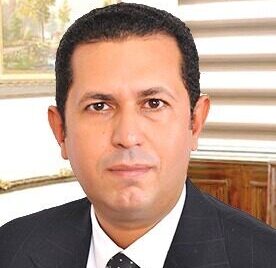As 2025 begins, the world faces a host of complex questions. Recent elections in a number of countries have set the stage for significant policy shifts. Nonetheless, uncertainty continues to dominate.
Donald Trump’s return to the White House raises concerns about the impact the policies he is expected to pursue will leave on the global stage. The question that arises is that will these policies pave the way for positive change or become a source of political unrest?
Diplomatic efforts are expected to intensify in 2025, particularly in Ukraine and Syria. While Ukraine may witness progress towards a ceasefire, the political transition in Syria following Bashar al-Assad’s fall remains fraught with uncertainty.
These developments expose the current international system’s limited ability to address the root causes of conflict.
Fear will increasingly shape the policies regulating migration and international relations. This emanates from the widespread discontent and anger surrounding the post-election atmosphere.
In 2024, over 1.6 billion voters went to the polls, often to penalise incumbent governments. The notable losers included US Democrats; UK Conservatives; France’s Emmanuel Macron, and Portugal’s left-wing coalition.
Even the leaders who retained power, such as Japan’s Shigeru Ishiba and India’s Narendra Modi, have emerged weakened, often dependent on feeble coalitions.
The global democratic landscape has suffered. According to the Global State of Democracy 2024 report, democratic performance declined in four out of nine countries assessed, with improvements in only one in four.
This instability coincides with intensified geopolitical activity in the Global South and persistent armed conflict hotspots.
Trump’s re-election and the European Union’s fragile institutional setup highlight the volatility of Western democracies.
Trump’s presidency necessitates a recalibration of international relations, as his influence could reshape global conflicts, climate change policies, and geopolitical balances.
Despite America’s declining dominance, Trump’s actions will have far-reaching implications.
The fall of Assad’s regime underscores the urgent need for effective diplomacy in regions undergoing transition. Stabilising these areas will require sustained international co-operation and dialogue in 2025.
The economic and social repercussions of Covid-19 continue to persist, five years after the pandemic subsided down.
Most nations continue to grapple with mounting debt, accelerated digitalisation, and growing individualism.
Global powers remain at odds, with climate, economic, and geopolitical goals increasingly misaligned. Rising discord, fuelled by cultural rifts and social media echo chambers, exacerbates these challenges.
Elections in the US; Pakistan; India, and other countries illustrate the destabilising power of alternative narratives.
Cultural and social divisions have deepened, emphasizing the urgent need to address the polarising forces that reshape global societies.
As 2025 unfolds, the international community must navigate across a fragmented world marked by political, economic, and social challenges.
Multilateralism and innovative solutions are essential to addressing these issues. Nonetheless, sustained dialogue and cooperation will be the world’s most effective weapon against all the uncertainties ahead.
Mohamed Fahmy is the editor-in-chief of The Egyptian Gazette and Egyptian Mail newspapers






Discussion about this post